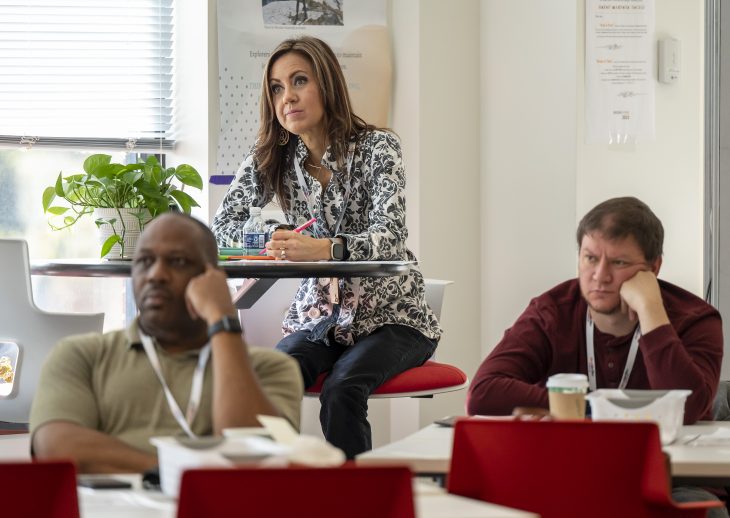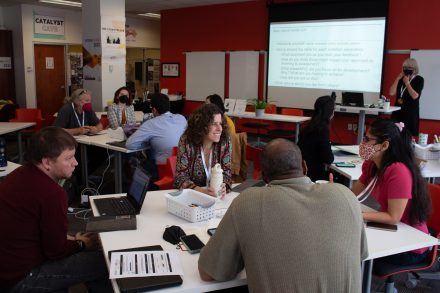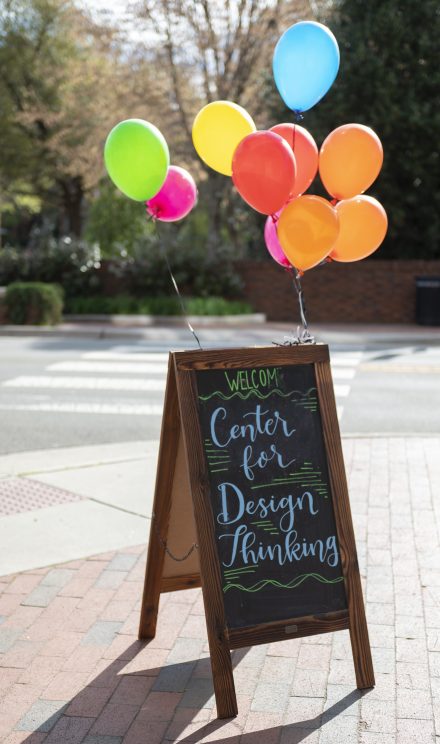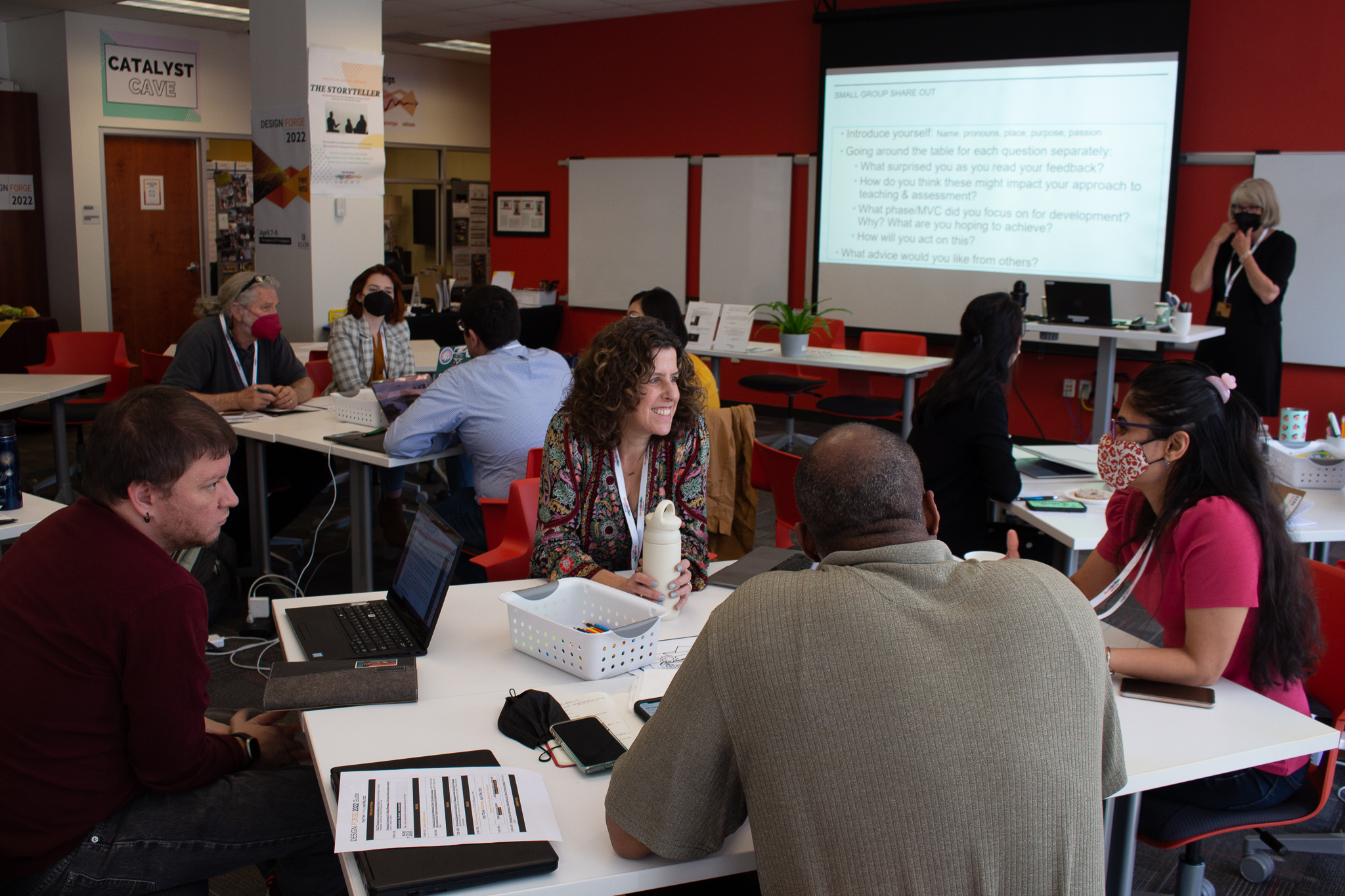Leaders in the world of design thinking congregated at Elon April 7-9 for the fifth annual Design Forge.
Leading minds in the field of design thinking gathered at Elon University for the fifth annual Design Forge hosted by the Center for Design Thinking from Thursday, April 7 through Saturday, April 9.
Focusing on the impact of design thinking pedagogies, the goal of this year’s forge was to critically study these pedagogies while infusing them into their teaching and connect with others across institutions of education.

“Part of the vision for the Elon Center for Design Thinking is to create spaces like this, where we get to be together and learn together across our communities,” said Danielle Lake, director of Design Thinking at Elon.
Over the years, Design Forge has focused on different areas including project-based learning, service design, well-being and wellness and participatory placemaking.
“This year, I’m excited to focus on trying to understand the impact and the value of these practices, as well as the challenges,” Lake said. “What do we know if we dig into the research? What do we need to know? And how can we do that together?”
According to Jeanne Liedkta, strategist, professor of business administration at the University of Virginia and keynote speaker for the Design Forge, the answer to that question is relatively simple.

“For design thinking to have the kind of transformational impact it is possible to have in order to create something new, learners have to become something new,” Liedtka said. “The essence of it is pretty simple. As educators, we bring students on a journey in which we teach them and encourage them to do a set of activities.”
Liedtka breaks those activities up into six familiar steps: gathering data (immersion), identifying insights (sensemaking), establishing design criteria (alignment), generating ideas (emergence), prototyping (imagining) and experimenting (learning in action).
But one common mistake often puts a wrench in the process: valuing the discovery portion of the process more than the testing portion.
“It’s a prescription for disaster to get the front end of design thinking right and the back end wrong. It’ll result in less expensive mistakes, but it’s still not going to get us to scale-level solutions with any higher degree of accuracy,” Liedtka said.

Students have experiences, and behind those experiences, they become someone new. Students are well-aware of the concept of “doing,” whether it be through projects or research. But an authentic experience has to result from those projects and research to change the way a student thinks, which starts with changing how educators teach.
“As educators, the ‘doing’ part isn’t enough. We have to get students to the genuine experiences,” Liedtka said. “That is fairly complex. But if we do it, then they come out at the end more empathic, more competent and inspired, more able to collaborate successfully and more comfortable with co-creation. [Those] the magic outcomes we’re shooting for,” she added.
On the Thursday of the forge, attendees heard from Pierce Otlhogile-Gordon, director of the Equity Innovation Studio at Think Rubix LLC, and Adam Royalty, the founder of the Entrepreneurship Design Studio at Columbia University on practicing justice in social change design and storytelling.
There were also a series of breakout Zoom sessions hosted by Elon faculty Tracey Thurnes, Phillip Motley and Rozana Carducci; students Soniyah Robinson and Morgan Kearns; and alumni Tyson Glover and Mackenzie Hahn.
Saturday, April 9 was the final day of the forge and attendees had a choice between one of two “Choose Your Own Adventure” sessions. The 2022 Design Forge concluded with a closing keynote and interactive workshop from Carlye Lauff, assistant professor of product design at the University of Minnesota, on strategies for assessing and articulating the value of iterative design.
Recordings and presentation slides from the three-day event can be found on the Design Forge website.



